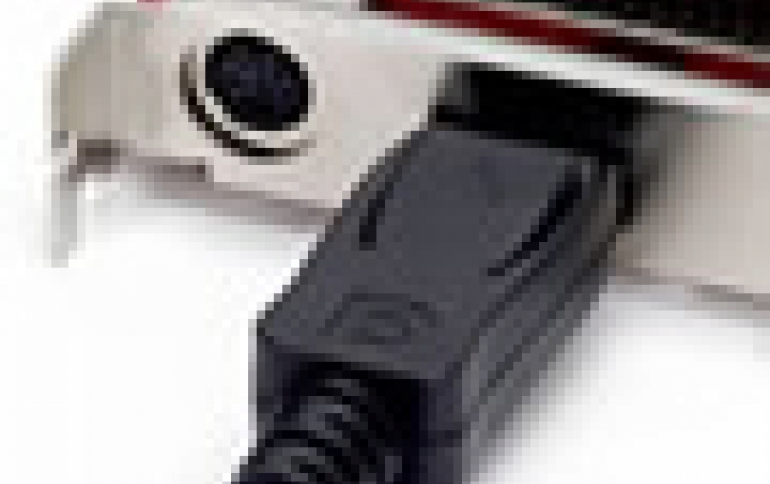
Apple's Displayport Content Protection Will Advance Piracy, EFF Says
Electronic Frontier Foundation (EFF) has commented on the latest DRM protection scheme that it is included at Apple's Mini DisplayPort video connection, found at the new MacBook and MacBook Pro models.
DisplayPort has been considered as a PC version of the HDMI interface found on Consumer electronic devices. Potentially replacing the DVI interface, DisplayPort offers lower power consumption and supports the 128-bit AES encrypted copy protection as an option.
Apple's Mini DisplayPort video connections found at the company's latest MacBook and MacBook Pro models seems to support some kind of DRM protection, possibly the well-known High-bandwidth Digital Content Protection (HDCP). According to reports, Apple's new notebooks do not stream protected audio/video content through their mini Display port connectors unless the connected display device is HDCP-compliant. Website ArsTechnica has recently reported that even legally purchased tracks from Apple's iTunes store cannot be streamed to non-HDCP compatible devices.
"This is a remarkably short-sighted move for both Apple and Hollywood," commented Fred von Lohmann, senior intellectual property attorney at the Electronic Frontier Foundation in a post to the organization?s Web site. "This punishes existing iTunes customers: several have reported that iTunes purchases that played on external monitors on their old Macbooks no longer will play on their new Macbooks. In other words, thanks to the Macbook "upgrade," Apple just "downgraded" everyone's previous investment in iTunes content," he added.
The EFF thinks Apple?s inclusion of HDCP will actually help bolster piracy as users look for ways around this form of DRM.
"As for the movie studios, this gives legitimate customers one more compelling reason to avoid "legit" sources of content in favor of downloading from The Pirate Bay or ripping DVDs using Handbrake. So this is just another example of the way in which the MPAA companies use DRM not to stop piracy (since this will, if anything, encourage people to opt for the Darknet), but rather to control those who make devices that play movies," von Lohmann added.
Apple's Mini DisplayPort video connections found at the company's latest MacBook and MacBook Pro models seems to support some kind of DRM protection, possibly the well-known High-bandwidth Digital Content Protection (HDCP). According to reports, Apple's new notebooks do not stream protected audio/video content through their mini Display port connectors unless the connected display device is HDCP-compliant. Website ArsTechnica has recently reported that even legally purchased tracks from Apple's iTunes store cannot be streamed to non-HDCP compatible devices.
"This is a remarkably short-sighted move for both Apple and Hollywood," commented Fred von Lohmann, senior intellectual property attorney at the Electronic Frontier Foundation in a post to the organization?s Web site. "This punishes existing iTunes customers: several have reported that iTunes purchases that played on external monitors on their old Macbooks no longer will play on their new Macbooks. In other words, thanks to the Macbook "upgrade," Apple just "downgraded" everyone's previous investment in iTunes content," he added.
The EFF thinks Apple?s inclusion of HDCP will actually help bolster piracy as users look for ways around this form of DRM.
"As for the movie studios, this gives legitimate customers one more compelling reason to avoid "legit" sources of content in favor of downloading from The Pirate Bay or ripping DVDs using Handbrake. So this is just another example of the way in which the MPAA companies use DRM not to stop piracy (since this will, if anything, encourage people to opt for the Darknet), but rather to control those who make devices that play movies," von Lohmann added.





















